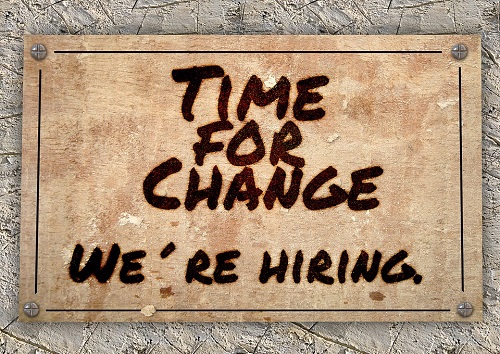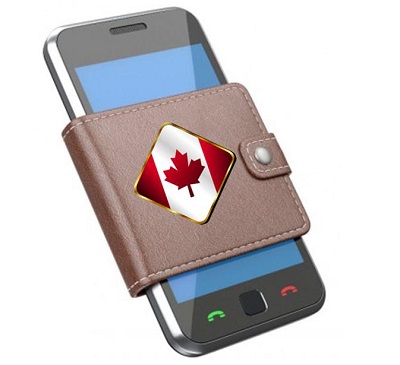BWild |
September 26, 2016
This new recruitment technique has been gamified to help to reduce the risk of unconscious bias.
Unilever has announced a new mobile gaming strategy it has launched as a part of its new hire selection process. They have added this new technique in order to promote diversity while speeding up the process as a whole and reducing the cost of hiring.
This giant consumer goods company is launching the process in the UK following success in other countries.
Unilever has already implemented similar mobile gaming strategy programs in the United States and Asia. They have proven to be successful for hiring new staff in those regions. The British and Dutch company is now expanding the program to save money and time while limiting the risk of unconscious bias when new staff is hired. Considering the fact that last year saw applications from 250,000 graduates around the world, this is an important step. The strategy brings mobile games together with video interviews.
Unilever says this mobile gaming strategy for hiring represents the first fully digitized recruitment process.
 That said, other companies have used mobile gamification to help the process. For instance, Vodafone, L’Oréal UK and Ireland, Microsoft, and Ernst & Young. Those brands each use the Debut mobile app as a part of their hiring process.
That said, other companies have used mobile gamification to help the process. For instance, Vodafone, L’Oréal UK and Ireland, Microsoft, and Ernst & Young. Those brands each use the Debut mobile app as a part of their hiring process.
In Unilever’s case, new applicants complete an online application form. Those who do so successfully then receive an application to play a number of games for a maximum of twenty minutes. Those with the best results are selected to receive a video interview. The applicants who are preferred during that phase move on to the final stage. In that stage, they take a virtual tour of the Unilever offices and experience a virtual collaboration. This provides them with an idea of how it feels to work within one of the company’s real environments.
The mobile gaming strategy for hiring was, in part, a response to data such as that produced by University College London and the Monster employment website. That research indicated that nearly half of all firms use video interviews as a component of their selection process. Moreover 7 percent no longer conduct face-to-face interviews. This occurs, despite the fact that it could promote appearance-based discrimination.
While cash purchases are becoming less commonplace in Canada, it’s plastic, not smartphones leading the way.
A new Moneris report revealed that Canadian mobile payments enthusiasm is finally growing. The report’s prediction is that by 2013, only 10 percent of transactions in Canada will be made with cash. In 2014, that figure was still 35 percent.
Digital payment technologies such as mobile wallets will be greatly responsible for reducing cash use.
The 70 percent decline in cash purchases from 2014 through 2030 will be greatly the result of Canadian mobile payments adoption. The number of contactless transactions and mobile wallets in use will reduce the need to carry cash.
 The report indicated that one in four Canadians between the ages of 18 and 34 years old already prefer using a mobile wallet over cash or plastic. Comparatively, only 18 percent feel that way in the 45 to 54 year old age group. Among those from 55 to 64 years old, 10 percent prefer mobile wallets. For those aged 65 and over, only 6 percent would want to use their smartphones instead of cash or credit and debit cards.
The report indicated that one in four Canadians between the ages of 18 and 34 years old already prefer using a mobile wallet over cash or plastic. Comparatively, only 18 percent feel that way in the 45 to 54 year old age group. Among those from 55 to 64 years old, 10 percent prefer mobile wallets. For those aged 65 and over, only 6 percent would want to use their smartphones instead of cash or credit and debit cards.
That said, there remain some very specific barriers to Canadian mobile payments adoption.
Leger conducted a survey in which there were 1,516 Canadian participants. When asked why they would choose not to use a mobile wallet, 62 percent had their doubts about security. They said they would be more likely to use smartphones to make purchases if they felt confident in mobile security.
Moreover, 42 percent said they’d be interested in using mobile payments if there were more stores that accepted those transactions. Another 50 percent said they would be interested in using smartphone payments if it meant they could leave all their plastic loyalty cards at home.
The report also showed interest in some of the additional opportunities offered by Canadian mobile payments. For example 48 percent of those surveyed said they would use a mobile wallet if they were emailed a receipt. Furthermore, 46 percent said they would use it if all stores accepted the technology. Moreover, 41 percent said they would be interested in using them if they could also store their ID on their phones so they could leave their entire wallets behind. Another 35 percent said they would use mobile payments to pay for public transportation fare.
 That said, other companies have used mobile gamification to help the process. For instance, Vodafone, L’Oréal UK and Ireland, Microsoft, and Ernst & Young. Those brands each use the Debut mobile app as a part of their hiring process.
That said, other companies have used mobile gamification to help the process. For instance, Vodafone, L’Oréal UK and Ireland, Microsoft, and Ernst & Young. Those brands each use the Debut mobile app as a part of their hiring process.
 The report indicated that one in four Canadians between the ages of 18 and 34 years old already prefer using a mobile wallet over cash or plastic. Comparatively, only 18 percent feel that way in the 45 to 54 year old age group. Among those from 55 to 64 years old, 10 percent prefer mobile wallets. For those aged 65 and over, only 6 percent would want to use their smartphones instead of cash or credit and debit cards.
The report indicated that one in four Canadians between the ages of 18 and 34 years old already prefer using a mobile wallet over cash or plastic. Comparatively, only 18 percent feel that way in the 45 to 54 year old age group. Among those from 55 to 64 years old, 10 percent prefer mobile wallets. For those aged 65 and over, only 6 percent would want to use their smartphones instead of cash or credit and debit cards.